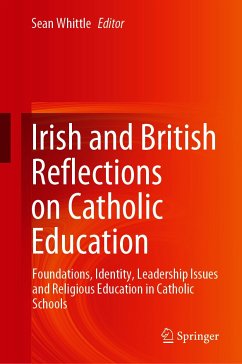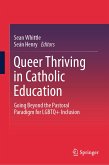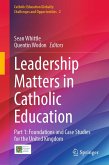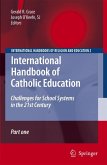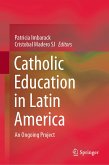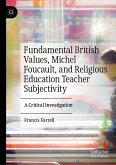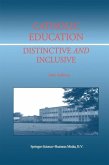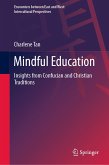This volume presents an interdisciplinary and systematic review of Catholic Education Studies across Ireland and Britain. Taken together, the chapters drill down to the foundations, identity and leadership matters in Catholic education and schools. It is in reading the complete volume that a more precise picture of Catholic education in Ireland and Britain develops into sharper focus. This is important because it reflects and crystallises the complexity which has almost organically developed within the field of Catholic Education Studies. It also provides a powerful antidote to the naïve reductionism that would boil Catholic education down to just one or two fundamental issues or principles. Contemporary Catholic education, perhaps globally but certainly in Ireland and Britain, is best depicted in terms of being a colourful kaleidoscope of differing perspectives. However this diversity is ultimately grounded in the underlying unity of purpose, because each of the contributors to this volume is a committed advocate of Catholic education.
The volume brings together a rich range of scholars into one place, so that these voices can be listened to as a whole. It includes contributions from leading scholars, blended with a plethora of other voices who are emerging to become the next generation of leading researchers in Catholic education. It also introduces a number of newer voices to the academic context. They present fresh perspectives and thinking about matters relating to Catholic education and each of them confidently stand alongside the other contributors. Moreover, these reflections on Catholic education are important fruits to have emerged from the collaboration made possible through the creation of the Network for Researchers in Catholic Education, which was established in 2016 under the auspices of Heythrop College, University of London.
"This stimulating collection of chapters from the UK andIreland makes a valuable contribution to the growing field of Catholic Education Studies internationally. By bringing together researchers and scholars at different levels, from various disciples and professional backgrounds and by focussing on key questions of the field, such as its intellectual and research foundations and debated issues including the changing demographic and cultural identity of schools, new challenges for school leadership, service to the poor, the role of Philosophy and Theology, listening to the voices of students, the futures of Religious Education and renewing the resources of spiritual capital in Catholic Education, this collection provides a model for emulation by others to adopt in their national locations, which will lead ultimately to more comparative studies." - Professor Gerald Grace KSG FSES, Professor of Catholic Education, St Mary's University, UK
Dieser Download kann aus rechtlichen Gründen nur mit Rechnungsadresse in A, B, BG, CY, CZ, D, DK, EW, E, FIN, F, GR, HR, H, IRL, I, LT, L, LR, M, NL, PL, P, R, S, SLO, SK ausgeliefert werden.

